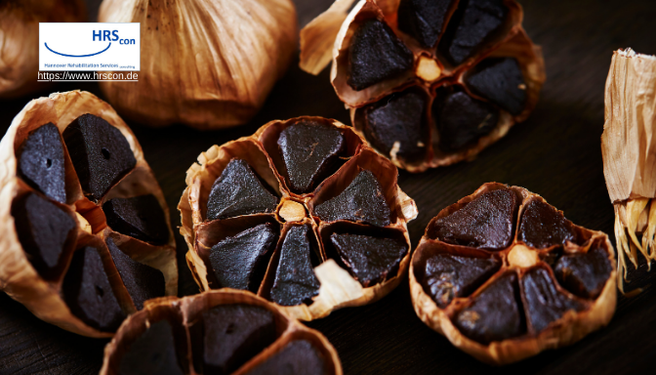Rooibos tea, derived from the Aspalathus linearis plant native to South Africa, is gaining international acclaim not only for its distinct flavor but also for its diverse health benefits. This herbal tea is caffeine-free, low in tannins, and packed with unique polyphenols and antioxidants. As wellness trends steer consumers toward natural remedies, Rooibos tea emerges as a star player in the field of functional foods.
The Science Behind Rooibos
Rooibos is available in two primary forms: fermented (red) and unfermented (green). Fermentation imparts the characteristic reddish-brown hue but slightly reduces the antioxidant levels compared to its green counterpart. The latter retains higher concentrations of polyphenols, such as aspalathin and nothofagin, known for their potent anti-inflammatory and anti-diabetic properties.
A recent systematic review, outlined in Beverages Journal (2024), assessed Rooibos’s impact on human health across multiple studies. Researchers concluded that Rooibos positively influences cardiometabolic health, oxidative stress markers, and lipid profiles. However, they noted a need for further clinical trials to confirm these findings conclusively.
Benefits of Rooibos Tea
The following table highlights the key health benefits of Rooibos tea based on recent research:
| Health Aspect | Benefit | Supporting Evidence |
|---|---|---|
| Cardiometabolic Health | Lowers blood glucose and improves cholesterol profiles | Six-week trial showed significant reductions in LDL cholesterol and increases in HDL |
| Antioxidant Properties | Enhances total antioxidant capacity (TAC) | Unfermented Rooibos increases TAC by 2.9% in controlled trials |
| Stress and Mood | Potential anxiolytic effects and cortisol regulation | Animal studies suggest glucocorticoid modulation, though human trials are needed |
| Skin Health | Reduces oxidative stress and promotes healing | Antioxidants combat skin aging; preliminary studies highlight dermatological benefits |
| Digestive Comfort | Gentle on the stomach, with low tannins | Unlike black or green tea, Rooibos avoids nutrient absorption issues |
| Hydration | Suitable for rehydration post-exercise | Comparable to water for hydration, with added antioxidants |
Cardiovascular and Metabolic Advantages
Rooibos tea has demonstrated promise in combating some of the most prevalent health challenges, including cardiovascular disease and diabetes. Studies included in the review revealed significant reductions in blood glucose levels and improvements in lipid profiles among participants consuming Rooibos regularly. For example:
- Blood Sugar Regulation: Rooibos was found to lower the incremental area under the curve (iAUC) for blood glucose in several trials. This suggests potential benefits for managing Type II diabetes.
- Cholesterol Management: One study highlighted a notable decrease in LDL (bad cholesterol) and triacylglycerols, alongside a rise in HDL (good cholesterol) levels in participants consuming six cups of Rooibos daily over six weeks.
These results underscore Rooibos’s potential as a natural ally in managing chronic conditions without the side effects often associated with synthetic medications.
A Natural Stress Reliever and Mood Booster
Preliminary animal studies have indicated Rooibos’s anxiolytic potential, thanks to its ability to influence glucocorticoid levels. While human trials in this area remain sparse, anecdotal evidence suggests that consuming Rooibos may contribute to improved emotional well-being and stress management.
The calming properties of Rooibos, combined with its lack of caffeine, make it an ideal evening beverage. Unlike traditional teas or coffee, Rooibos won’t disrupt sleep patterns, aligning perfectly with today’s emphasis on holistic health and mental wellness.
Skin and Dermatological Benefits
Rooibos is not just a treat for your taste buds but also a potential boon for your skin. Its high antioxidant content can combat oxidative stress, which contributes to premature aging and skin conditions. Some studies have explored its role in reducing inflammation and promoting wound healing, though more research is needed to substantiate these claims.
Versatility Beyond the Cup
Rooibos’s applications extend beyond traditional brewing. It is increasingly being incorporated into various functional food products and skincare formulations. For instance, Rooibos extracts are now featured in:
- Nutraceuticals: Capsules and powders for targeted health benefits.
- Cosmetics: Creams and serums leveraging its anti-aging and soothing properties.
- Culinary Innovations: Used as a flavoring agent or base in smoothies, desserts, and even savory dishes.
A Sustainable Beverage Choice
As sustainability becomes a deciding factor for consumers, Rooibos offers an eco-friendly option. Its cultivation in the Cederberg region of South Africa adheres to stringent environmental guidelines, ensuring minimal ecological impact. Moreover, Rooibos farming supports local communities, providing economic opportunities in rural areas.
What Sets Rooibos Apart
Compared to other teas like green or black tea, Rooibos stands out due to its lack of caffeine and low tannin content. While tannins in traditional teas can inhibit nutrient absorption and cause stomach discomfort, Rooibos is gentle on the digestive system. This makes it suitable for a wide audience, including children, pregnant women, and those with sensitive stomachs.
Tips for Incorporating Rooibos into Your Routine
Ready to reap the benefits of Rooibos tea? Here are some simple ways to incorporate it into your daily routine:
- Morning Kickstart: Brew a warm cup of Rooibos to enjoy alongside your breakfast. Its natural sweetness pairs well with honey or lemon.
- Post-Workout Recovery: Use it as a base for protein shakes or smoothies. Its anti-inflammatory properties can aid muscle recovery.
- Evening Wind-Down: Replace your nightly glass of wine or coffee with a soothing cup of Rooibos. Add a dash of cinnamon or vanilla for a comforting treat.
The Road Ahead: Unlocking Rooibos’s Full Potential
Despite its numerous benefits, the systematic review pointed out that research on Rooibos is still in its infancy. Key areas for future exploration include its impact on mental health, neurological conditions, and microbiome health. Additionally, unfermented (green) Rooibos, with its higher antioxidant content, warrants more in-depth studies.
For consumers, the message is clear: Rooibos tea is not just a trendy beverage but a potential game-changer in natural health. With its versatile applications and growing body of evidence, Rooibos is poised to become a staple in wellness routines worldwide.
Conclusion
Rooibos tea exemplifies how ancient remedies can find a place in modern health narratives. Whether you’re looking to improve your cardiovascular health, manage stress, or simply enjoy a delicious caffeine-free beverage, Rooibos offers something for everyone. As research continues to unfold, this South African treasure might soon earn its rightful place among the most celebrated superfoods.




